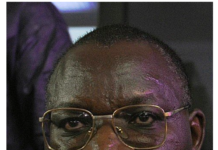Former American president Bill Clinton helped popularize the term “new breed of African leaders” whom he believed to be different from iron-fisted totalitarian rulers that had entrenched “big man politics.” Unlike the later, new breed leaders were thought to espouse democratic governance and socioeconomic transformation. The core members of the new breed was a quartet comprising Yoweri Kaguta Museveni of Uganda, Meles Zenawi of Ethiopia, Isaias Afewerki of Eritrea, and Paul Kagame of Rwanda — men who came to power in mid-1980s and early 1990s. How might Clinton rate the new breed 20 years on?
A candid Clinton would have to rethink his “new breed” when it comes especially to politics. Clinton’s quartet has in fact outdone the big men they replaced in clinging onto power. Museveni who has ruled Uganda for 30 years just “won” elections on February 19, 2016. Afewerki has ruled Eritrea for 25 years. Before he died in office in 2012, Meles had ruled Ethiopia for 21 years. Kagame has ruled Rwanda for 22 years, the initial four years through a figurehead president — and will likely stay in power until 2034, as a result of a constitutional amendment he engineered in 2015.
In this sense the new breed are virtually indistinguishable from the real thing — autocrats such as Robert Mugabe of Zimbabwe in power for 36 years; Angola’s José Eduardo dos Santos, 37 years; Equatorial Guinea’s Obiang Nguema, 37 years; and Cameroon’s Paul Biya, 34 years.
Far from spearheading democratic governance, the new breed have built ruthless totalitarian regimes to a varying degree. Of the quartet Eritrea is the most closed and most repressive, routinely denying its people access to the outside world. Since independence from Ethiopia in 1993 Eritrea has been ruled by as a one-party state headed by Afewerki, who tolerates no opposition. Kagame is made of the same cloth — the opposition is either locked, or in exile where some tend to die mysteriously.
In the case of Ethiopia, competitive politics was decimated in the mid-2000s when over 20,000 protesters against electoral malpractice, including more than 100 opposition leaders and journalists were rounded up and locked up. There is only member of the opposition in the current Ethiopian parliament. Uganda is the least iron-fisted, with a harassed opposition, and relatively dynamic independent media. But at the time of writing this article, opposition leaders Dr Kizza Besigye and General Mugisha Muntu (retired) were being mysteriously held by police pending the announcement of presidential election results.
While the new breed did not turn out as Clinton envisaged, the irony of ironies is that he became the leading supporter of one of the most aggressive totalitarian among the quartet — Kagame. Clinton portrays Kagame as a man who “forged a strong, unified and growing nation with the potential to become a model for the rest of Africa and the world.” The Obama Administration sees Kagame rather differently, accusing him of “arbitrary or unlawful killings both inside and outside of the country, disappearances, torture, harsh conditions in prisons and detention centers…”
About the author:
Dr David Himbara is an educator, political economist, and author based in Toronto, Canada. He teaches and works in the field of development and competitiveness.































































